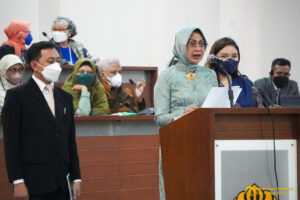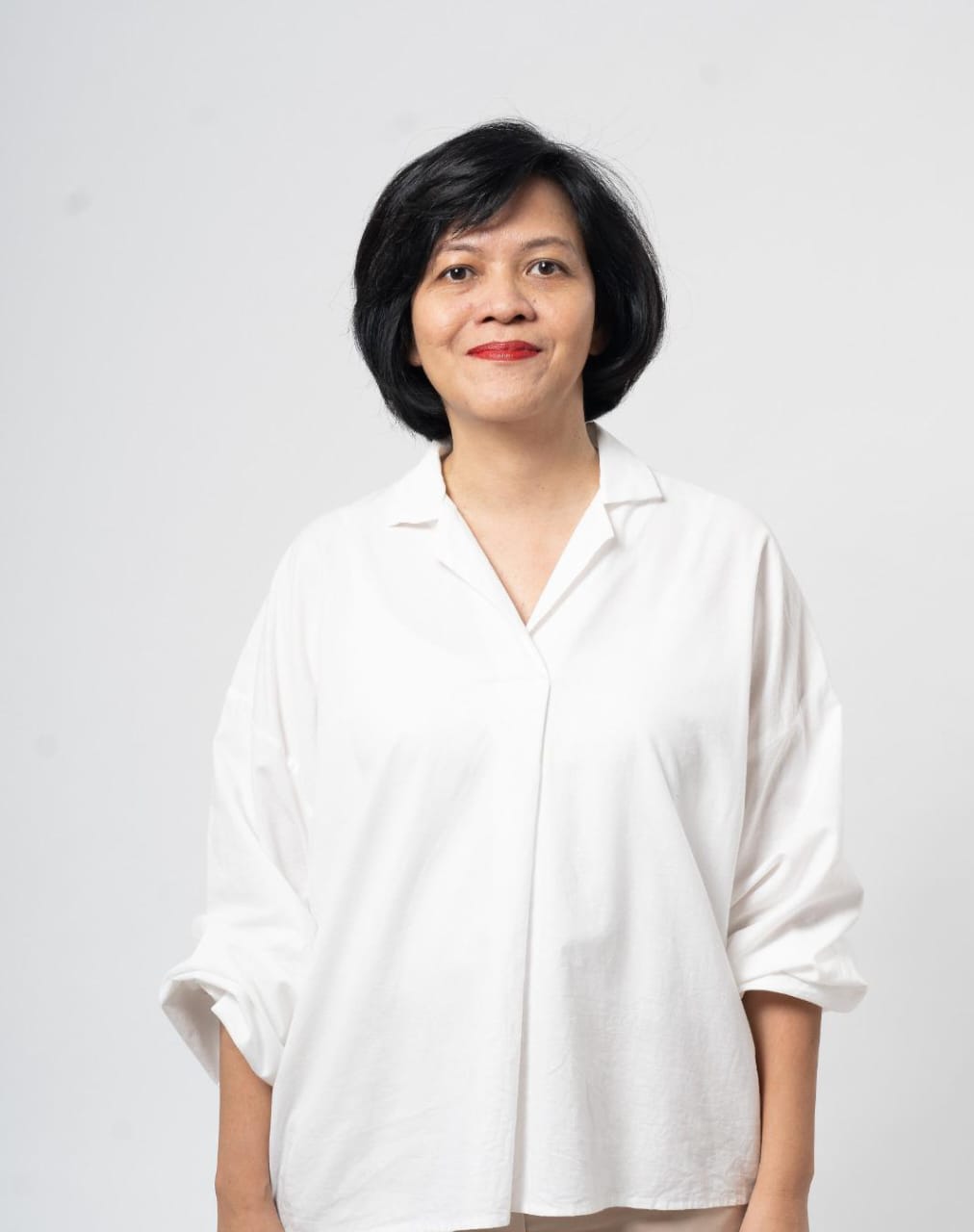
Doctoral Promotion of Amurwani Dwi Lestariningsih: A Study of Collective Memory of Former G30S–1956 Female Political Prisoners in the 1968–2019 Society
In 1979, all female political prisoners of 1965 Category B were released from detention. The government made a mental and ideological re-education program as well as skills provision so that they could return to coexist with society. However, these adaptation efforts are often met with rejection, both from the family and the public. Then they become reserved individuals and tend to hide their identities.
After the 1998 Reformation, former female political prisoners began to open up and mingle with society. They build a network and group as resistance organizations and build new positioning to change the negative stigma that has been attached. Since then, the former political prisoners began to actively fight for their civil rights.
During the reform period, the Truth and Reconciliation Commission Law (UU-KKR) initiated by the government was rejected by former detainees because it contained articles that were considered detrimental. In 2000, President Abdurrahman Wahid issued an apology to former political prisoners and expressed the need for national reconciliation, but this attempt failed. The former political prisoners then proposed a class action so that they would receive reputation rehabilitation and compensation, but this attempt again failed.
The former female political detainees then formed three organizations to build self-identity through counter-narratives. These counter-narratives are based on collective memory and shared experiences. The three organizations are Wanodja Binangkit (WB) and Dialita Choir in Jakarta, as well as Kiprah Perempuan (Kipper) in Yogyakarta. Through songs and art performances, they convey a new narrative to the younger generation and the public about the G30S 1965 events from a different perspective. They fight back without rage, but with tenderness and compassion.
In her dissertation entitled “Adaptasi dan Perlawanan: Studi Memori Kolektif Mantan Tahanan Politik Perempuan G30S–1956 dalam Kehidupan Masyarakat 1968–2019” (Adaptation and Resistance: A Study of Collective Memory of Former G30S–1956 Female Political Prisoners in the 1968–2019 Society), Amurwani Dwi Lestariningsih examines why former female political prisoners maintained their identity through counter-narratives in three organizations. According to Amurwani, collective memory can be used as a method to explore historical sources that are not contained in archives and documents. Digging into the collective memory can lead to new insights because the emotions, feelings, and individual views of former political prisoners can be seen.
The three organizations established by former political prisoners show different things. Wanodja Binangkit is used to articulate themselves through the performance of Cianjuran Sundanese arts. This organization refuses to be associated with a remained group of the banned women’s organization, which is Gerwani. Meanwhile, Dialita is an ideological cultural movement that appears as a choir. Dialita sympathizers are filled with young people. Many young musicians are rearranging their songs. Then another organization is Kipper. True to its philosophy, Kipper is an ideological protector who defends the beliefs of former political prisoners. This organization is engaged in the social sector that gathers support to influence government policy.
The activities they organize encourage them to mingle with the community and participate in various social activities as an adaptation strategy and get out of the negative stigma. For them, history does not only talk about the past but also plays as a starting point for the emergence of new memories which are used as new historical sources in the future. This is part of the application of the concept of the struggle for recognition.
For the younger generation, the counter-narratives spread by former female political prisoners are the main narratives that shape their memories. In the end, the narratives are accepted as the truth. Dialita’s songs, for example, show the love, tenderness of a mother, feelings of longing for children, and also the revolutionary spirit to be able to enjoy a free life again. This encourages the late Millennial generation and early generation Z to continue to seek information about the G30S 1965 incident.
“Identity reconstruction is carried out to remove the negative stigma that former female political prisoners have received. The articulation of identity by former detainees has resulted in a new trajectory in the history of ‘forgotten and marginalized people’ that new narratives about their existence in the form of a new articulation of identity, self-image, or memory have emerged,” said Amurwani.

Thanks to her research, Amurwani Dwi Lestariningsih was able to earn a Doctoral degree in the Department of History, Faculty of Humanities, Universitas Indonesia (FIB UI) with cum laude title. The doctoral promotion session was attended by the Coordinating Minister for Human Development and Culture of the Republic of Indonesia (PMK RI) Prof. Dr. Muhadjir Effendy, M.A.P.; Rector of UI Prof. Ari Kuncoro, S.E., M.A., Ph.D.; as well as all staff from the Ministry of Education, Culture, Research and Technology, PMK RI, the National Archives of the Republic of Indonesia, National Institute of Public Administration Indonesia, and the National Library of Indonesia.
The Doctoral Promotion Session which was held in Building I FIB UI, on Monday (9/1), chaired by Prof. Dr. Agus Aris Munandar with Promoter Prof. Dr. Susanto Zuhdi and Co-Promoter Dr. Linda Sunart. The Examiner Team in the session were Dr. Abdurakhman; Prof. Melani Budianta, Ph.D.; Dr. Bondan Kanumoyoso, M. Hum.; Prof. Dr. Clemens Six; and Prof. Iwan Gardono Sudjatmiko, Ph.D.
Author: Sasa



